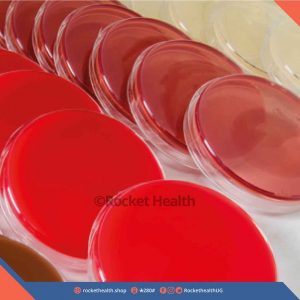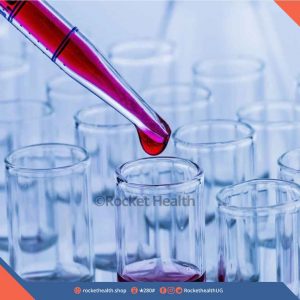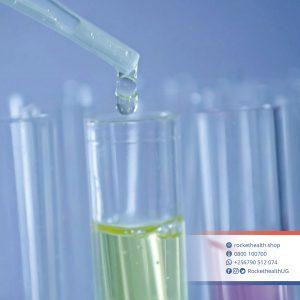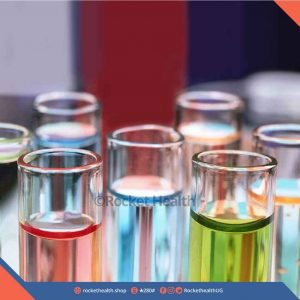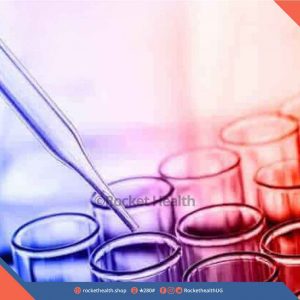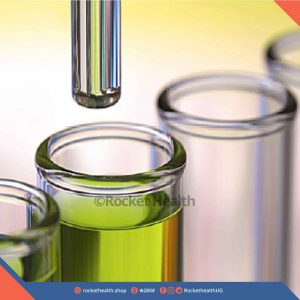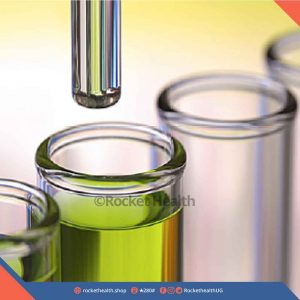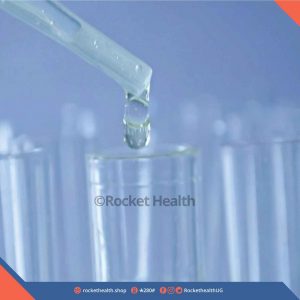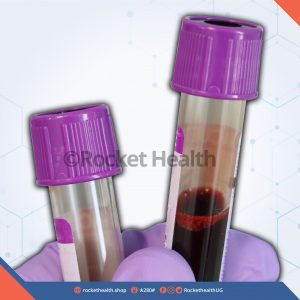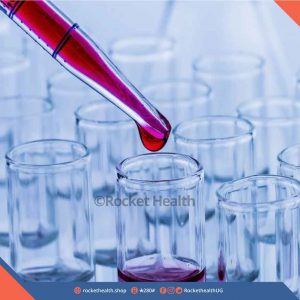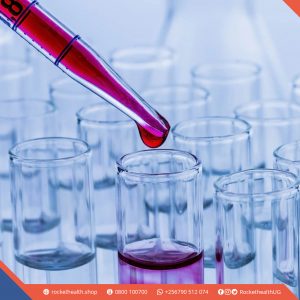No products in the cart.
High vaginal swab culture and sensitivity
A culture is a test to find the exact germs (such as bacteria or a fungus) that is causing an infection. A sensitivity test checks to see what kind of medicine, such as an antibiotic, will work best to treat the illness or infection.
Vaginal swab.
Do not take antibiotics for atleast 3 days before the test.
A test that demonstrates the presence of disease causing organisms in the body. Culture and sensitivity demonstrates the presence of disease causing organisms in the body and to identify which medicines can best eliminate them. In this test, disease causing organisms (most commonly bacteria and fungi) are grown in the laboratory (cultured) and medicines tried on them to determine which ones best work on them (sensitivity testing).
UGX 60,000High vaginal swab culture and sensitivity
UGX 60,000Free T4
This is a test used to evaluate the proper functioning of the thyroid gland and monitor thyroid treatment.
Blood.
If you take thyroid hormone as treatment for thyroid disease, it is recommended that your blood sample be drawn before you take your dose for that day. Acute illness may also affect thyroid testing results so it is generally recommended that thyroid testing be avoided in hospitalized patients. Inform the doctor if you are on any medications, have any allergies or underlying medical conditions before this test.
Most of the hormone produced by the thyroid is T4. This hormone is relatively inactive, but it is converted into the much more active T3 in the liver and other tissues. If the thyroid gland does not produce sufficient T4 and T3 (underactive thyroid), due to thyroid dysfunction or to insufficient TSH, then the affected person experiences symptoms of hypothyroidism such as weight gain, dry skin, cold intolerance, irregular menstruation, and fatigue. If the thyroid gland produces too much T4 and T3, the affected person may experience symptoms associated with overactive thyroid (hyperthyroidism), such as rapid heart rate, anxiety, weight loss, difficulty sleeping, tremors in the hands, and puffiness around dry, irritated eyes and in some cases, bulging eyes.
UGX 45,000Free T4
UGX 45,000URIC ACID
This blood test is used to check for gout and also monitor people undergoing chemotherapy or radiation treatment for cancer.
Blood.
No specific patient preparation protocol required. Inform your doctor if you are on any medications or have any underlying medical conditions or allergies before undergoing this test.
Uric acid is produced by the breakdown of purines. Purines are nitrogen-containing compounds found in the cells of the body, including our DNA. If too much uric acid is produced or not enough is removed, it can accumulate in the body, causing increased levels in the blood (hyperuricemia). The presence of excess uric acid can cause gout, a condition characterized by inflammation of the joints due to the formation of uric acid crystals in the joint (synovial) fluid. Excess uric acid can also be deposited in tissues such as the kidney, leading to kidney stones or kidney failure.
UGX 30,000URIC ACID
UGX 30,000Diabetes or Hypertension Review Check Up
Tests include:
Renal Function Test
Lipid Profile
HBA1c
Fasting Blood Sugar
Urinalysis
Liver Function TestUGX 190,000Diabetes or Hypertension Review Check Up
UGX 190,000Fertility Hormonal Profile
Tests include:
Progesterone
Luteinizing Hormone (LH)
Follicle Stimulating Hormone (FSH)
Estradiol
ProlactinUGX 225,000Fertility Hormonal Profile
UGX 225,000Back to school check (Basic)
Tests include:
Random blood sugar,
Malaria RDT
Typhoid screening
Urinalysis + (free HCG for girls)
(Signing school form)UGX 45,000Back to school check (Basic)
UGX 45,000Prothrombin Time (INR)
The prothrombin time (PT) is a test that helps evaluate your body’s ability to appropriately form blood clots.
Blood.
None needed, however if you are receiving anticoagulant therapy, the blood sample should be collected before taking your daily dose.
A PT measures the number of seconds it takes for a clot to form in your sample of blood after substances (reagents) are added. The PT is often performed along with a partial thromboplastin time (PTT) and together they assess the amount and function of proteins called coagulation factors that are an important part of proper blood clot formation. For people taking warfarin, most laboratories report PT results that have been adjusted to the INR. A prolonged PT means that the blood is taking too long to form a clot, this may be caused by conditions such as liver disease, vitamin K deficiency, or a coagulation factor deficiency (e.g., factor VII deficiency).
UGX 35,000Prothrombin Time (INR)
UGX 35,000Luitenising Hormone
This test measures the amount of luteinizing hormone in the blood. (LH) is a hormone associated with reproduction. Its stimulation of either ovary or testicles results in the release of an egg from the ovary (ovulation) in women or testosterone production in men.
Blood.
Early morning samples are preferred. A woman’s sample should be collected at specific times during her menstrual cycle. Inform the doctor if you are on any medications, have any allergies or underlying medical conditions before this test.
LH is produced by the pituitary gland. In women of childbearing age, several hormones (LH, follicle-stimulating hormone (FSH), estrogen and progesterone) rise and fall in a specific sequence during each menstrual cycle. In men, LH stimulates Leydig cells in the testicles to produce testosterone. In infants and children, LH levels rise shortly after birth and then fall to very low levels. Results of an LH test are typically considered with results of other hormone tests, such as FSH, estrogens, and/or testosterone.
UGX 50,000Luitenising Hormone
UGX 50,000Follicle Stimulating Hormone
This blood test measures level of Follicle Stimulating Hormone(FSH) in the blood which is responsible for fertility.
Blood.
No test preparation is needed, but early morning samples are preferred and a woman’s sample should be collected at specific times during her menstrual cycle.
FSH is made by the pituitary gland located in the brain, In women of childbearing age, FSH stimulates the growth and maturation of eggs (follicles) in the ovaries during the follicular phase of the menstrual cycle. In men, FSH stimulates the testicles to produce mature sperm and also promotes the production of androgen binding proteins. Disorders affecting the hypothalamus, pituitary, and/or the ovaries or testicles can cause the production of too much or too little FSH, resulting in a variety of conditions such as infertility, abnormal menstrual cycles, or early (precocious) or delayed puberty.
UGX 50,000Follicle Stimulating Hormone
UGX 50,000SERUM LIPASE
This blood test measures the level of lipase to check for acute pancreatitis.
Blood.
Inform your doctor if you are on any medications or have any underlying medical conditions or allergies before undergoing this test. Fasting of 8 hours is usually recommended before this test.
Lipase is produced by the pancreas in the body. It is a protein-based enzyme which plays a role in the digestion and breakdown of fats in the stomach. Impaired function of the pancreas due to injury or infections or diseases may lead to increased or decreased release of lipase from the pancreas. Lipase levels can be used to diagnose any disease/condition which may be affecting the function of pancreas.
UGX 30,000SERUM LIPASE
UGX 30,000PERIPHERAL BLOOD FILM
This test is used to look for abnormalities in blood cells and enables diagnoses of many illnesses.
Blood.
No specific patient preparation protocol required. Inform your doctor if you are on any medications or have any underlying medical conditions or allergies before undergoing this test.
A blood film is a drop of blood spread thinly onto a glass slide that is then treated with a special stain and the blood cells on the slide are examined and evaluated.
UGX 30,000PERIPHERAL BLOOD FILM
UGX 30,000Routine Antenatal Lab checkup
Tests include:
Complete blood count,
Malaria RDT
Random blood sugar,
Blood grouping,
HIV screening,
Hepatitis B screening,
Syphilis test,
UrinalysisUGX 95,000Routine Antenatal Lab checkup
UGX 95,000Pre-conception screening
- Complete blood count
- Fasting Blood Sugar
- Blood grouping
- Hepatitis B screening
- HIV screening
- Syphilis screening
- HB Electrophoresis (Sickle cell trait screening)
- Liver function tests
- Renal function tests
- Urinalysis
[embedyt] https://www.youtube.com/watch?v=9__dYC-2r44[/embedyt]
UGX 220,000Pre-conception screening
UGX 220,000Couple’s wellness check-Basic (Premarital)
- Blood grouping
- HIV screening
- HB electrophoresis (Sickle cell trait screening)
[embedyt] https://www.youtube.com/watch?v=9__dYC-2r44[/embedyt]
UGX 150,000Couple’s wellness check-Basic (Premarital)
UGX 150,000Free T3
This is a test used to evaluate the proper functioning of the thyroid gland and monitor thyroid treatment.
Blood.
Acute illness may affect thyroid testing test results. It is generally recommended that thyroid testing be avoided in hospitalized patients Inform the doctor if you are on any medications, have any allergies or underlying medical conditions before this test.
Triiodothyronine (T3) is one of two major hormones produced by the thyroid gland, the other major thyroid hormone is called thyroxine (T4) and together they help control the rate at which the body uses energy. If the thyroid gland produces excessive amounts of T4 and T3, then the person affected may have symptoms associated with overactive thyroid (hyperthyroidism), such as nervousness, tremors of the hands, weight loss, insomnia, and puffiness around dry, irritated eyes and in some cases, bulging eyes. Insufficient amounts of T4 and T3, then the person may have signs and symptoms associated with underactive thyroid (hypothyroidism) and a slowed metabolism, such as weight gain, dry skin, fatigue, and constipation
UGX 45,000Free T3
UGX 45,000

